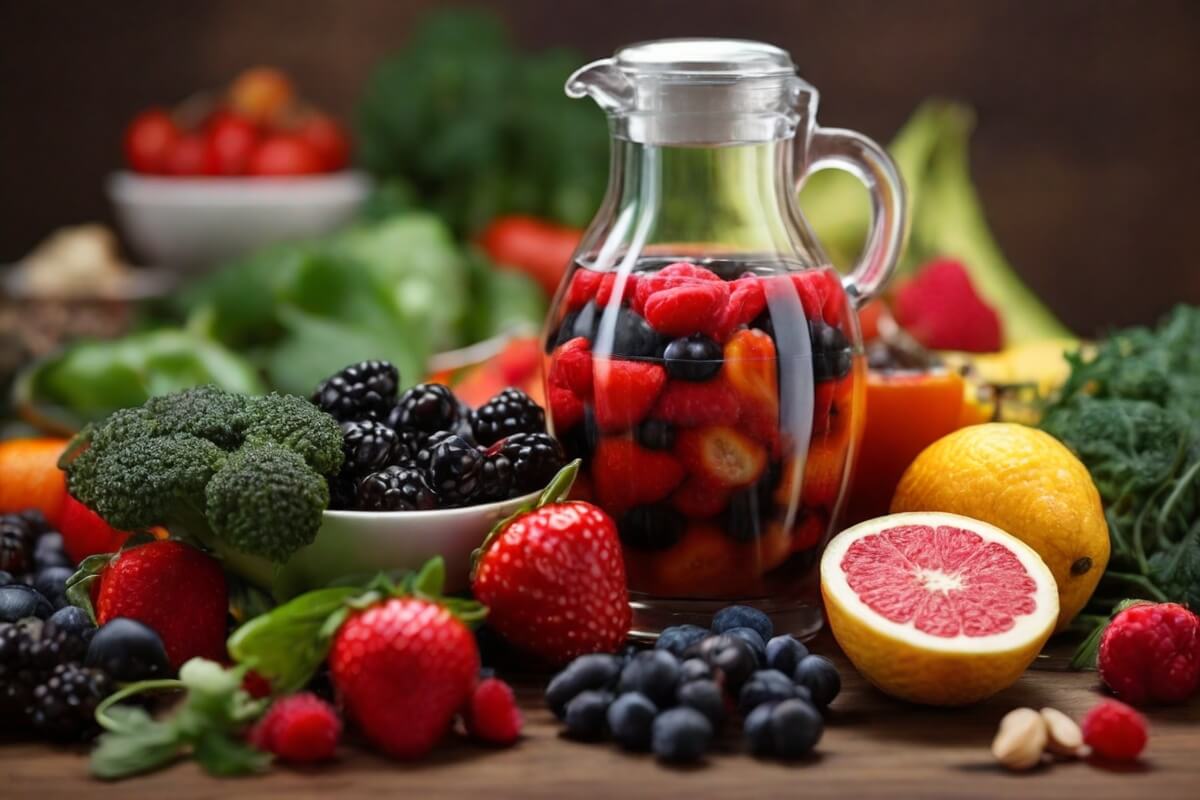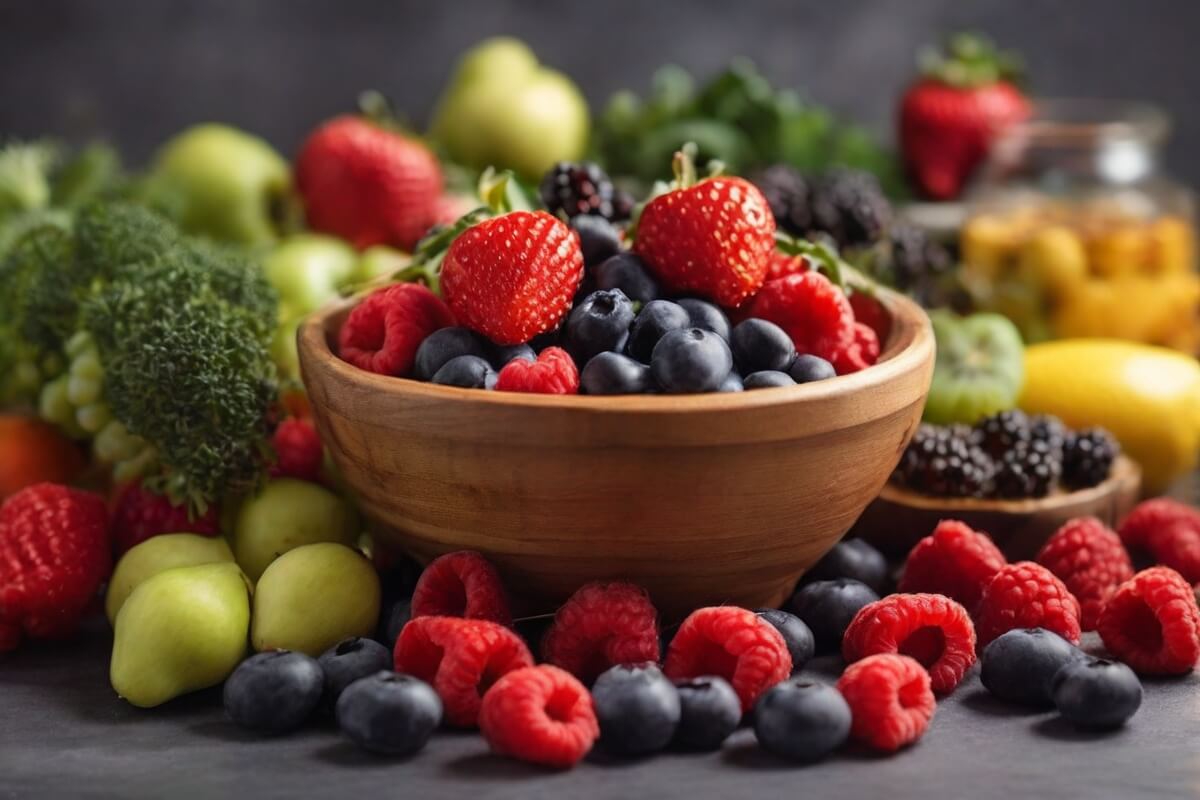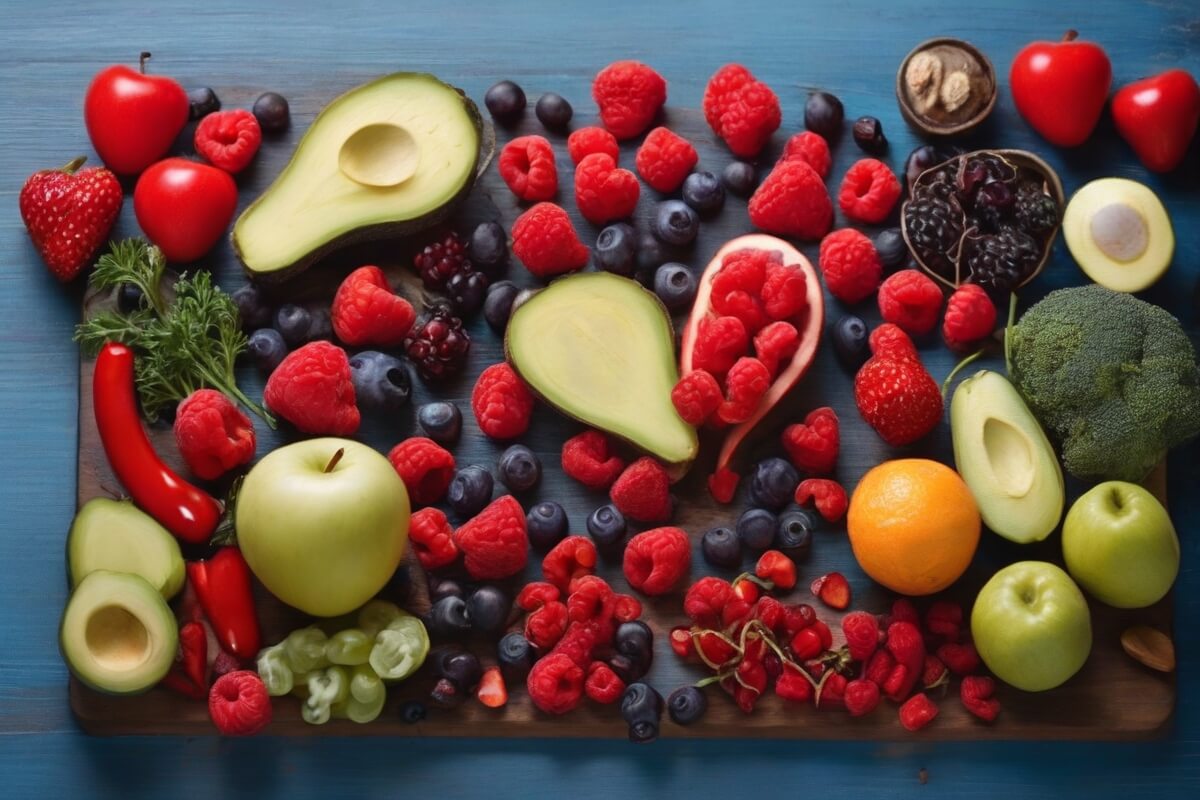Inflammation is a natural response of your immune system to fight off infections, injuries, and toxins. However, when inflammation becomes chronic, it can lead to serious health problems such as heart disease, diabetes, arthritis, and cancer. That’s why it’s important to follow a diet that can help reduce inflammation and promote your overall well-being.
A diet for anti-inflammation is not a strict or complicated plan. It’s simply a way of eating that emphasizes foods that have anti-inflammatory properties and avoids foods that can trigger or worsen inflammation. In this article, you’ll learn about the benefits of a diet for anti-inflammation, what foods to eat and avoid, and how to start one today.
How I Discovered the Power of a Diet for Anti-Inflammation

I used to suffer from chronic pain, fatigue, and mood swings. I tried different medications and therapies, but nothing seemed to work. I felt hopeless and frustrated. Then, I came across an article that changed my life. It was about the link between inflammation and many chronic diseases, and how a diet for anti-inflammation can help prevent and treat them.
I was intrigued by the idea, so I decided to give it a try. I started to eat more fruits, vegetables, whole grains, fish, nuts, and olive oil, and cut down on processed foods, sugar, salt, and red meat. Within a few weeks, I noticed a huge difference. My pain and inflammation decreased, my energy and mood improved, and I felt healthier and happier than ever. I was amazed by the power of a diet for anti-inflammation, and I wanted to share it with others.
What Are the Benefits of a Diet for Anti-Inflammation?

A diet for anti-inflammation can have many benefits for your health and well-being. Here are some of the most common ones:
- Weight loss. A diet for anti-inflammation can help you lose weight by reducing your appetite, boosting your metabolism, and improving your insulin sensitivity. By eating foods that are high in fiber, protein, and healthy fats, you’ll feel fuller for longer and burn more calories. Plus, by avoiding foods that are high in calories, carbs, and fat, you’ll reduce your calorie intake and prevent weight gain.
- Heart health. A diet for anti-inflammation can help you lower your blood pressure, cholesterol, and triglycerides, and prevent plaque buildup in your arteries. By eating foods that are rich in omega-3 fatty acids, antioxidants, and phytochemicals, you’ll protect your heart from oxidative stress and inflammation. Plus, by avoiding foods that are high in sodium, saturated fat, and trans fat, you’ll reduce your risk of hypertension, atherosclerosis, and heart attack.
- Diabetes prevention and management. A diet for anti-inflammation can help you prevent and manage diabetes by improving your blood sugar control and insulin sensitivity. By eating foods that have a low glycemic index, you’ll prevent spikes and crashes in your blood sugar levels and reduce your need for insulin. Plus, by avoiding foods that have a high glycemic index, you’ll prevent insulin resistance and diabetes complications.
- Arthritis relief. A diet for anti-inflammation can help you relieve arthritis pain and stiffness by reducing inflammation and swelling in your joints. By eating foods that have anti-inflammatory and analgesic effects, such as ginger, turmeric, and fish oil, you’ll ease your symptoms and improve your mobility. Plus, by avoiding foods that can aggravate arthritis, such as sugar, gluten, and nightshade vegetables, you’ll prevent further damage and inflammation.
- Cancer prevention. A diet for anti-inflammation can help you prevent cancer by enhancing your immune system and inhibiting tumor growth. By eating foods that have anticancer properties, such as berries, green tea, and garlic, you’ll fight off free radicals and inflammation that can cause DNA damage and mutation. Plus, by avoiding foods that can promote cancer, such as processed meat, alcohol, and charred meat, you’ll reduce your exposure to carcinogens and toxins.
- Mental health. A diet for anti-inflammation can help you improve your mental health by boosting your brain function and mood. By eating foods that are rich in omega-3 fatty acids, B vitamins, and magnesium, you’ll support your brain cells and neurotransmitters that regulate your cognition, memory, and emotions. Plus, by avoiding foods that can impair your brain health, such as sugar, refined carbs, and artificial sweeteners, you’ll prevent inflammation, oxidative stress, and depression.
- Skin health. A diet for anti-inflammation can help you improve your skin health by enhancing your collagen production and hydration. By eating foods that are high in vitamin C, vitamin E, and zinc, you’ll stimulate your skin’s repair and renewal and protect it from sun damage and aging. Plus, by avoiding foods that can harm your skin, such as dairy, gluten, and spicy foods, you’ll prevent acne, eczema, and rosacea.
What Are the Common Questions About a Diet for Anti-Inflammation?

If you’re interested in starting a diet for anti-inflammation, you may have some questions about it. Here are some of the most frequently asked ones:
- What foods should I eat on a diet for anti-inflammation? The best foods to eat on a diet for anti-inflammation are those that have anti-inflammatory, antioxidant, and nutrient-dense properties. Some examples are:
- Fruits: apples, bananas, berries, cherries, citrus fruits, grapes, kiwis, melons, pears, pineapples, etc.
- Vegetables: artichokes, asparagus, broccoli, cabbage, carrots, cauliflower, celery, cucumbers, kale, lettuce, mushrooms, onions, peppers, spinach, squash, sweet potatoes, tomatoes, etc.
- Whole grains: barley, brown rice, buckwheat, millet, oats, quinoa, rye, spelt, etc.
- Legumes: beans, chickpeas, lentils, peas, soybeans, tofu, etc.
- Nuts and seeds: almonds, cashews, chia seeds, flaxseeds, pistachios, pumpkin seeds, sunflower seeds, walnuts, etc.
- Fish and seafood: anchovies, cod, herring, mackerel, salmon, sardines, shrimp, trout, tuna, etc.
- Poultry and eggs: chicken, turkey, eggs, etc.
- Healthy oils: olive oil, avocado oil, coconut oil, flaxseed oil, etc.
- Herbs and spices: basil, cilantro, cinnamon, cumin, garlic, ginger, mint, oregano, parsley, rosemary, thyme, turmeric, etc.
- Beverages: water, green tea, herbal tea, etc.
- What foods should I avoid on a diet for anti-inflammation? The worst foods to eat on a diet for anti-inflammation are those that have pro-inflammatory, oxidizing, and nutrient-poor properties. Some examples are:
- Processed foods: chips, crackers, cookies, cakes, pies, pastries, candy, chocolate, ice cream, etc.
- Sugar and sweeteners: table sugar, brown sugar, honey, maple syrup, agave nectar, corn syrup, etc.
- Refined carbs: white bread, white rice, white pasta, white flour, etc.
- Fried foods: french fries, onion rings, chicken nuggets, doughnuts, etc.
- Red meat and processed meat: beef, pork, lamb, bacon, ham, sausage, hot dogs, etc.
- Margarine and trans fats: stick margarine, shortening, partially hydrogenated oils, etc.
- Saturated fats: butter, cheese, cream, full-fat dairy, etc.
- Alcohol: beer, wine, liquor, etc.
- Caffeine: coffee, black tea, energy drinks, etc.
- Nightshade vegetables: eggplant, peppers, potatoes, tomatoes, etc. (if you have a sensitivity to them)
- How do I start a diet for anti-inflammation? Starting a diet for anti-inflammation is not difficult or expensive. You just need to make some simple changes to your eating habits and lifestyle. Here are some tips to help you get started:
- Plan ahead. Make a grocery list of the foods you need and stick to it. Avoid impulse buying and stocking up on junk food. Prepare your meals and snacks in advance and store them in containers or bags. This will help you avoid temptation and save time and money.
- Eat more plants. Aim to fill half of your plate with fruits and vegetables at every meal. Choose a variety of colors and types to get the most benefits. Eat more raw or lightly cooked vegetables to preserve their nutrients and enzymes. Add more salads, soups, stir-fries, and smoothies to your menu.
- Choose quality over quantity. Opt for organic, grass-fed, wild-caught, and free-range products whenever possible. They are more nutritious and less contaminated than conventional ones. Avoid processed, packaged, and canned foods that have added sugars, salts, preservatives, and artificial ingredients. Read the labels and look for the shortest and simplest ingredient lists.
- Drink more water. Water is essential for your hydration, digestion, detoxification, and metabolism. It also helps you feel fuller and curb your appetite. Drink at least eight glasses of water a day, and more if you exercise or sweat a lot. You can also drink herbal teas, green tea, or lemon water with some honey or stevia to enhance the flavor.
- Eat less animal products. Limit your intake of red meat and processed meat to once or twice a week, and choose lean cuts and smaller portions. Replace some of your animal protein with plant protein, such as beans, lentils, tofu, nuts, and seeds. Choose low-fat or non-dairy alternatives for milk, yogurt, and cheese, such as almond, soy, or coconut milk. Eat more fish and seafood, especially those that are high in omega-3 fatty acids, such as salmon, sardines, and mackerel.
- Spice up your food. Add more herbs and spices to your dishes to enhance their flavor and health benefits. Some of the best herbs and spices for anti-inflammation are turmeric, ginger, garlic, cinnamon, cumin, rosemary, and basil. You can also make your own spice blends and sauces, such as curry, salsa, pesto, and hummus.
- Snack smart. Avoid snacking on junk food, such as chips, cookies, candy, and soda. They are high in calories, carbs, fat, and sugar, and low in nutrients and fiber. They can also spike your blood sugar and cause inflammation. Instead, snack on healthy foods, such as fruits, vegetables, nuts, seeds, and yogurt. They are high in fiber, protein, and healthy fats, and low in calories and sugar. They can also stabilize your blood sugar and reduce inflammation.
- Treat yourself occasionally. Don’t deprive yourself of your favorite foods, but enjoy them in moderation and as a reward. For example, you can have a piece of dark chocolate, a glass of red wine, or a slice of cake once in a while, but not every day. This will help you satisfy your cravings and prevent binge eating.
Conclusion
A diet for anti-inflammation is a simple and effective way to improve your health and well-being. By eating more foods that have anti-inflammatory properties and avoiding foods that can trigger or worsen inflammation, you can prevent and treat many chronic diseases, such as obesity, diabetes, heart disease, arthritis, and cancer. You can also improve your mental health, skin health, and overall quality of life.
A diet for anti-inflammation is not a fad or a quick fix. It’s a lifestyle change that requires commitment and consistency. But it’s also flexible and adaptable to your preferences and needs. You can start by making small changes to your eating habits and gradually increase them over time. You can also experiment with different foods and recipes and find what works best for you.
If you’re ready to start a diet for anti-inflammation, you can use this article as a guide and a reference. You can also consult your doctor or a nutritionist for more advice and support. Remember, a diet for anti-inflammation is not only good for your body, but also for your mind and soul. It can help you live longer, happier, and healthier. So, what are you waiting for? Start your diet for anti-inflammation today and enjoy the benefits!
We hope you enjoyed this article and learned something new. If you have any questions, comments, or suggestions, please leave them below. We’d love to hear from you and help you with your diet for anti-inflammation. Thank you for reading and have a great day!
Want more daily tips on recipes, home workouts, diets, and much more let us know on facebook and pinterest too
